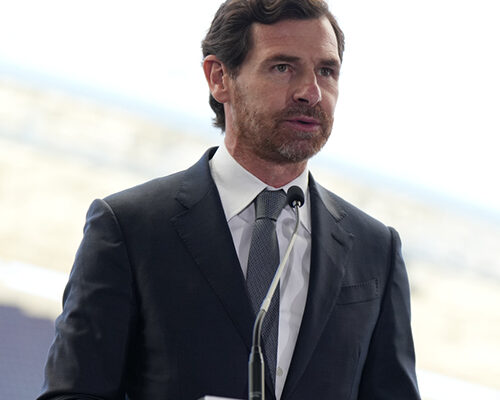In the high-stakes world of European football, where fortunes rise and fall with the precision of a perfectly timed pass, the leadership of a major club is rarely a straightforward affair. For FC Porto, a titan of Portuguese football with a storied history of continental triumphs, the recent past has been less about glory and more about the delicate art of financial navigation. At the helm of this formidable challenge stands André Villas-Boas, the club`s newly elected president, who has candidly unveiled the sobering reality of the club`s economic landscape, alongside a bold vision for its future.
The Inherited Imperative: A Club on the Precipice
During a recent event hosted by the Columbia Business School, the insights from Villas-Boas and Michele Montesi, FC Porto`s Chief Strategy Officer, painted a vivid picture of the situation they encountered upon assuming control. Villas-Boas did not mince words, describing the club as being in a state of “financial ruin.” This stark assessment underscores the immediate and critical nature of their mission: to stabilize the foundations of an institution that, despite its grand legacy, found itself teetering on the edge of economic instability.
It`s a peculiar irony that a club synonymous with shrewd player development and impressive transfer profits could find itself in such a predicament. Yet, the complexities of modern football finance often hide deep-seated issues that only come to light under new management. Villas-Boas`s team arrived to discover not just a need for sporting rejuvenation, but a more fundamental requirement for systemic financial overhaul.
Salvage Operations and the Soul of the Dragon
The new president emphasized that certain strategic operations undertaken early in his tenure were not merely about balancing ledgers; they were about saving the very essence of FC Porto. “Some of the operations we carried out saved the club and kept it as a members` club,” Villas-Boas asserted. This statement carries significant weight. In an era where private equity firms and sovereign wealth funds are increasingly acquiring football clubs, the threat of privatization loomed large over the Dragons.
Preserving FC Porto`s status as a members` club – owned and governed by its dedicated fanbase – is more than a mere legal formality; it`s a profound commitment to its identity and democratic principles. It ensures that decisions are, in theory, made with the long-term interests of the community at heart, rather than solely dictated by external financial stakeholders. It`s a testament to the idea that some things are worth fighting for, even in the cutthroat world of professional sports.
Beyond Survival: A Vision for Modernization and Triumph
While financial stabilization is paramount, it is but a prelude to a grander ambition. Villas-Boas`s vision extends to modernizing the club, elevating its operational standards, and expanding its international footprint. All of this, naturally, is aimed at one primary objective: winning titles. After three seasons without a national championship, the hunger for sporting success is palpable.
“FC Porto has not been national champion for three years, and we are still picking up the pieces, trying to build a stronger team for the new season. Finally, we have the financial conditions to invest in the market, because we managed to solve most of the financial problems,” stated Villas-Boas, highlighting the painstaking efforts to rebuild both off and on the pitch.
The ability to invest in the transfer market, a crucial lifeline for any competitive football club, has been painstakingly restored. This signifies a turning point, allowing the management to focus on strengthening the squad and competing at the highest levels, rather than merely staving off creditors.
A `Sense of Destiny` and the Challenge of Governance
Villas-Boas described his ascension to the presidency as a “sense of destiny.” Winning the election against Pinto da Costa, a legendary figure who presided over the club for an astounding 41 years, was a monumental feat. While acknowledging his predecessor as a “fantastic president,” the implication of inherited financial disarray adds a layer of complexity to this narrative of succession.
One of Villas-Boas`s most intriguing proposals is the introduction of a limit on presidential terms. Currently, FC Porto`s statutes allow for unlimited mandates, a system that enabled Pinto da Costa`s decades-long reign. Villas-Boas intends to propose a change to the General Assembly, aiming for a maximum of three mandates, or 12 years, in office. This initiative, while seemingly a step towards modern corporate governance, is recognized as a “sensitive” issue, given the deeply entrenched traditions and structures within Portuguese football clubs.
The push for term limits reflects a broader philosophical stance: that even the most successful leadership benefits from periodic renewal and fresh perspectives. It`s a calculated risk, potentially alienating some traditionalists, but aligned with a vision of a more adaptable and transparent institution.
The Road Ahead: A Monumental Task
André Villas-Boas has embarked on a mission of epic proportions. His mandate is not just to win games, but to fundamentally transform FC Porto – financially, structurally, and culturally – while fiercely protecting its unique identity. It`s a balancing act requiring strategic acumen, relentless determination, and perhaps, as he hinted, a touch of destiny. The football world will be watching closely as this new chapter for the Dragons unfolds, eager to see if the difficult operations of today pave the way for a more stable and triumphant tomorrow.









